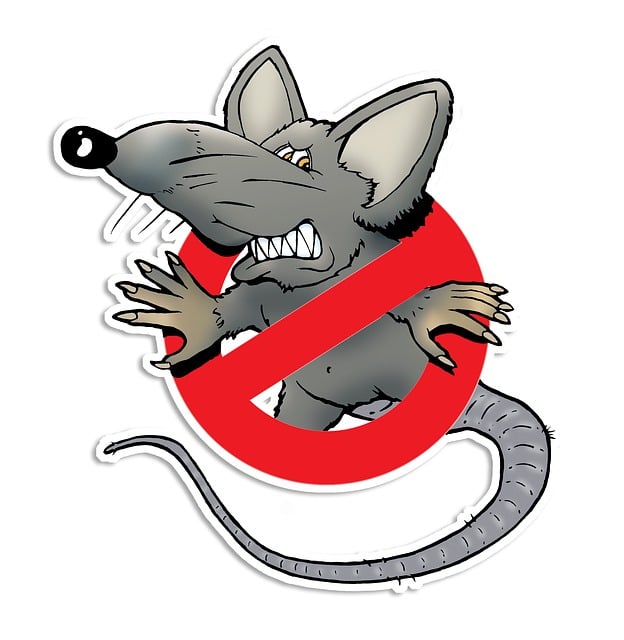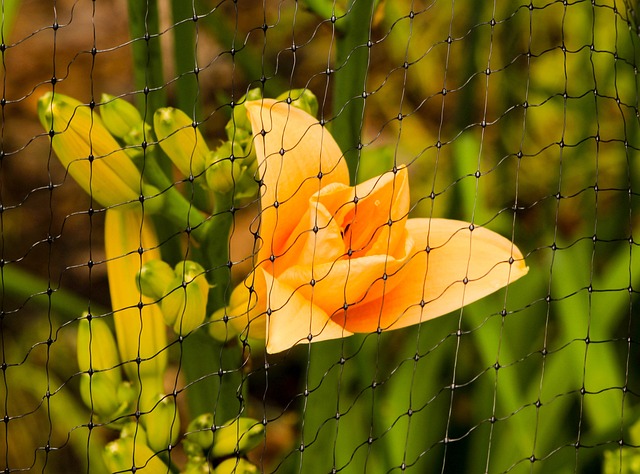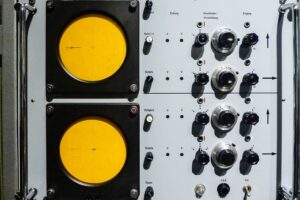Pest Control Tucson has significantly advanced its pest management strategies by integrating modern techniques and technologies that enhance treatment efficiency and effectiveness against various pests. The city's adoption of Integrated Pest Management (IPM) practices, along with the use of digital tools like thermal imaging for early detection, ensures both residential and commercial properties in Tucson can remain free from pests. These initiatives are complemented by a shift towards environmentally friendly methods, including bait stations, mechanical traps, and the judicious application of eco-friendly chemical solutions. The innovation continues with the deployment of advanced detection systems that utilize sensor technology, cameras, and data analytics for preemptive pest control strategies, providing precise interventions that minimize harm to properties and health. Biological control methods, such as employing natural predators like parasitic wasps and beneficial insects, are central to Tucson's sustainable approach, aligning with the city's commitment to ecological preservation. Pest Control Tucson is leading the way with these advanced, sustainable practices, reflecting a forward-thinking stance on urban pest management that balances human needs with environmental health and safety. The future of pest control in Tucson emphasizes the use of automation, AI, and biological solutions to ensure sustainable eradication efforts while safeguarding ecosystems.
In the realm of pest management, Tucson stands at the forefront of innovation. The latest advancements in pest control technology are transforming the way we address infestations, ensuring treatments are not only effective but also efficient. This article delves into the revolutionary techniques and cutting-edge solutions that are redefining pest control in Tucson. From sophisticated early detection systems to the integration of biological and chemical innovations within Integrated Pest Management (IPM) programs, the city is pioneering a new era in pest eradication. We’ll explore how automation, AI, and sustainable practices are shaping the future of this critical industry, making Tucson a model for effective pest control across the nation.
- Revolutionary Techniques in Pest Control Tucson: An Overview of Cutting-Edge Solutions
- Advanced Pest Detection Systems: How Technology is Improving Early Identification in Tucson Homes and Businesses
- The Role of Biological and Chemical Innovations in Tucson's Integrated Pest Management (IPM) Programs
- The Future of Pest Control Tucson: Exploring Automation, AI, and Sustainable Practices in Pest Eradication
Revolutionary Techniques in Pest Control Tucson: An Overview of Cutting-Edge Solutions

In recent years, Tucson’s pest control industry has seen significant advancements with the advent of revolutionary techniques designed to provide efficient and effective treatments against a variety of pests. These cutting-edge solutions integrate the latest in technology and science, ensuring that both residential and commercial properties can enjoy a pest-free environment. One such innovation is the use of Integrated Pest Management (IPM), which emphasizes prevention, monitoring, and control measures. By employing IPM strategies, Tucson’s pest control experts are able to manage pests more sustainably and effectively, minimizing the reliance on chemical treatments.
Moreover, the integration of advanced digital tools has transformed the way pest control services in Tucson are conducted. Thermal imaging technology allows for early detection of pest activity by identifying signs of infestation that are not visible to the naked eye. Additionally, the use of environmentally friendly methods, such as bait stations and mechanical traps, has become more prevalent, offering safer alternatives to traditional pesticides. These tools and techniques not only enhance the effectiveness of pest control treatments but also align with Tucson’s commitment to environmental stewardship. The fusion of these innovative practices with the expertise of local pest control professionals in Tucson underscores the city’s dedication to staying at the forefront of effective pest management solutions.
Advanced Pest Detection Systems: How Technology is Improving Early Identification in Tucson Homes and Businesses

In Tucson, the integration of advanced pest detection systems has significantly enhanced the early identification and management of pest infestations in both residential and commercial settings. These cutting-edge technologies employ a combination of sensors, cameras, and data analytics to detect signs of pests long before they become a problem. This proactive approach allows for targeted interventions, minimizing the impact of pests on properties and health. The systems are designed to be highly sensitive, capable of identifying various pests through their unique behaviors, sounds, and even chemical signatures. Local pest control experts in Tucson are leveraging these tools to provide residents and businesses with more effective and less intrusive pest management solutions. By pinpointing infestations early on, the use of chemicals can be reduced, and treatments can be tailored to address specific pest issues, ensuring a safer environment. These advancements in detection not only save time and resources but also offer peace of mind by safeguarding against the unnoticed entry and establishment of pests. As a result, Pest Control Tucson services are becoming increasingly sophisticated and are a testament to the region’s commitment to advanced pest management techniques.
The Role of Biological and Chemical Innovations in Tucson's Integrated Pest Management (IPM) Programs

In Tucson’s Integrated Pest Management (IPM) programs, both biological and chemical innovations play pivotal roles in creating efficient and effective treatments. Biological solutions are at the forefront of sustainable pest control, utilizing natural predators and beneficial insects to manage pest populations. These biological agents offer a targeted approach that minimizes environmental impact, aligning with Tucson’s commitment to ecological preservation. For instance, introducing parasitic wasps to control pests like aphids or releasing ladybugs to mitigate scaling insect issues are common biological strategies employed in the region. This approach not only reduces reliance on chemical treatments but also supports biodiversity and maintains the natural balance of ecosystems within urban environments.
Concurrently, advancements in chemical pest control, when necessary, are integrated judiciously. Innovations in chemical formulations have led to the development of less toxic substances that are more effective and have a lower environmental footprint. These chemicals are used as a last resort, often after thorough inspection and monitoring of pest activity. The integration of both biological and chemical strategies within Tucson’s IPM framework ensures that pests are managed in a manner that is both comprehensive and environmentally sensitive. Pest Control Tucson companies are adept at utilizing these innovations to provide tailored solutions for residential, commercial, and agricultural settings, reflecting the city’s dedication to effective and responsible pest management practices.
The Future of Pest Control Tucson: Exploring Automation, AI, and Sustainable Practices in Pest Eradication

In the realm of pest control, Tucson stands at the forefront of innovation, integrating advanced automation and artificial intelligence (AI) to enhance pest eradication efforts. The future of pest management in Tucson is increasingly leaning towards sustainable and environmentally friendly practices. These cutting-edge solutions not only aim to effectively manage pest populations but also prioritize the health and safety of ecosystems. Automated monitoring systems, equipped with sensors and cameras, are being deployed to detect infestations early, minimizing the use of chemical treatments and reducing the environmental impact. The integration of AI algorithms allows for real-time data analysis, enabling more precise targeting of pest species and optimizing control measures. This tech-driven approach is designed to adapt to the dynamic behavior patterns of pests, ensuring long-term efficacy and sustainability in pest control practices within Tucson’s diverse habitats.
Sustainable practices are becoming paramount in the pest control industry, with Tucson leading by example. The adoption of Integrated Pest Management (IPM) strategies is on the rise, focusing on the prevention and suppression of pest populations through a combination of biological, cultural, physical, and chemical methods. Biological solutions, such as introducing natural predators or using botanical insecticides, are increasingly being incorporated into treatment plans to reduce reliance on synthetic chemicals. Additionally, the use of heat treatments and cold treatments is gaining popularity as non-toxic alternatives that effectively eradicate certain pests without harming the surrounding environment. These forward-thinking approaches in Tucson’s pest control sector not only promise a safer tomorrow but also set a precedent for other regions to follow in ensuring a harmonious balance between human habitats and nature.
In conclusion, the evolution of pest control in Tucson has been marked by a significant shift towards advanced, efficient, and sustainable practices. The integration of cutting-edge technologies, including revolutionary techniques, sophisticated detection systems, and the innovative use of both biological and chemical solutions, has transformed the field of Integrated Pest Management (IPM). As these technologies continue to advance, with automation, AI, and environmentally friendly approaches at the forefront, Tucson’s pest control industry is poised to offer even more effective and eco-conscious solutions. Homeowners and businesses in Tucson can look forward to heightened protection against pests with minimal environmental impact and enhanced peace of mind, thanks to the ongoing commitment to excellence and innovation in Pest Control Tucson.
